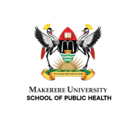Tuition fees are: Ug. Shs. 5m/= per year for Ugandans, or US $5000 per year for foreign students. Makerere University reserves the right to revise tuition fee rates whenever found necessary. In addition to the tuition fees, students must also meet all other expenses related to: registration fees to the university, examination fees, library and administration, travel and accommodation, a personal computer, stationery, books, field studies, and research costs for the dissertation.

